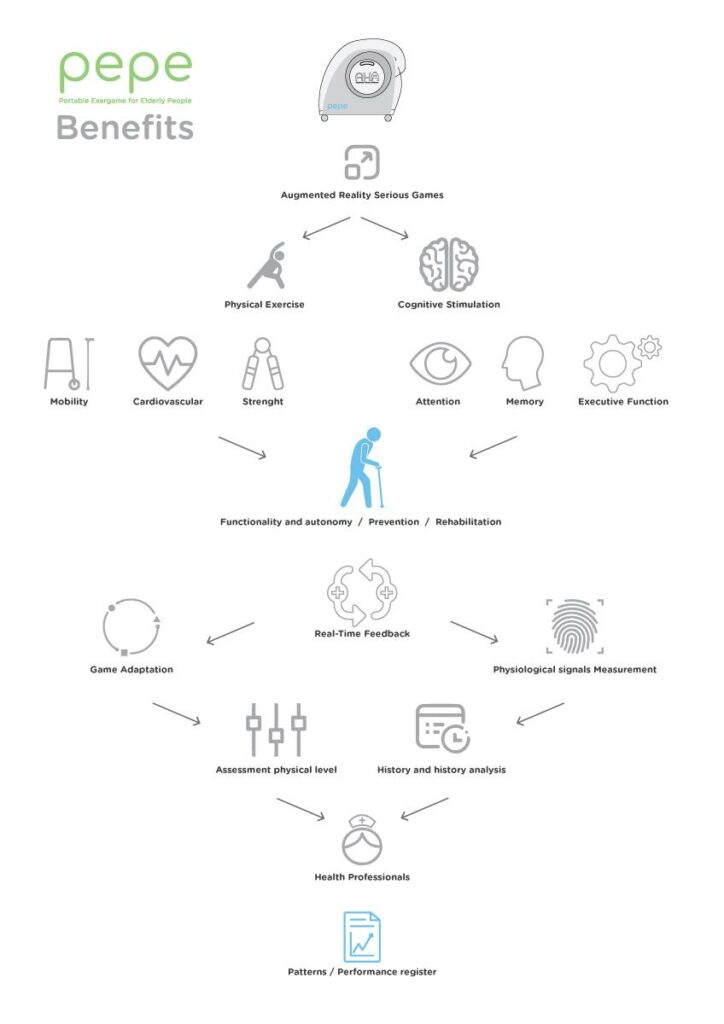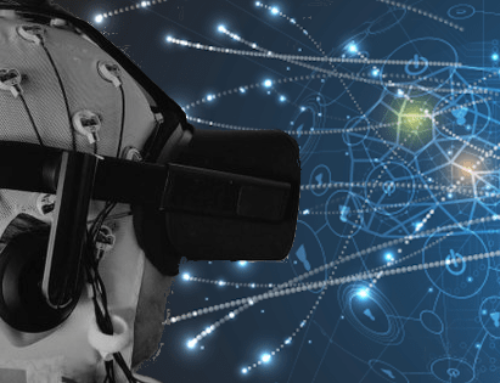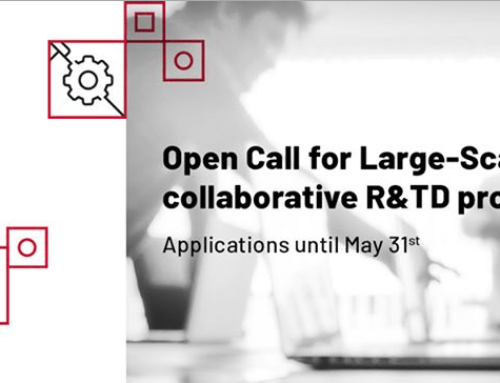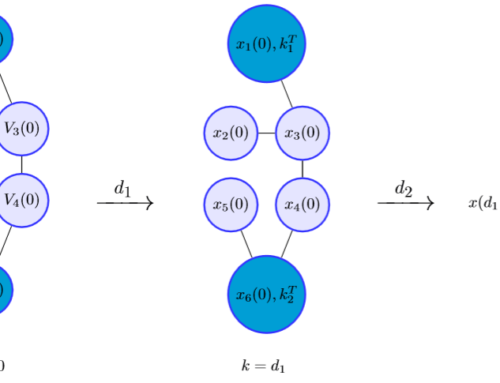In an increasingly aged society, how can technology help combat a sedentary lifestyle?
Serious games are tasks built to be a ludic activity while also being aimed at a process of physical rehabilitation. When motivated by the score and distracted by the game the user ends up experiencing as much physical effort as they would in a cognitive rehabilitation or physical therapy session.
“It’s much easier to ‘pick up’ twenty balls in a game than to have to raise your arms up and down just for the sake of the exercise.” Researcher Heitor Lourenço specialized in Neuropsychology had previously used immersive and virtual reality to aid in the therapy processes of elderly people, who would be confined inside without being able to experience other environments.
Using a robot with seniors already contributes to their technological literacy since this sector of the population has basically null contact with computers. For the elderly, there is still not a lot that uses new technologies and lately supports the issue of active ageing are gathering more attention by European facilitators.
Even though in Portugal there isn’t much investment directed towards initiatives catered specifically for this age group, a bigger amount of support seems to come from European actions. Like the Active and Assistive Living (AAL) Program, a €700 million funding initiative focused exclusively on enhancing the quality of life of older adults while strengthening the industrial base in Europe.
PEPE, an easily deployable and configurable augmented reality and video projection platform developed at ISR to promote active ageing through physical training by the use of exergames, was recently selected among 95 applications to attend a mentoring academy in Brussels to support the development of their business. The developing team is also on the run to win a first prize (€35,000), second prize (€10,000) or judges’ choice (€5,000) for “Smart Ageing”, which will be awarded in September.
The AHA project counts on the participation of several partners who contribute in different ways.
With research teams from Carnegie Mellon University (CMU), Associação do Instituto Superior Técnico para a Investigação e o Desenvolvimento (IST-ID), Associação para a Inovação e Desenvolvimento da FCT (NOVA.ID.FCT), Faculdade de Motricidade Humana (FMH) and Madeira Interactive Technologies Institute (M-ITI) “AHA: Augmented Human Assistance” is developed in regards to the Carnegie Mellon Portugal Program. It also counts on companies like PLUX and iDreams Robotics, but mostly on several research institutions. ISR designs the whole robotic platform while the Faculdade Portuguesa de Motricidade Humana designs the physical exercises and M-ITI integrates them in video games. This platform also collects data from the users, in order to inform the health practitioners but also to propel further studies ant the optimization of such exergames.
Vizzy the robot, used to project the games and interact with the elders, is also a component that offers a contribution in terms of social interaction. Working with homes and therapists the researchers collect a set of information about the best practices in order to program the robot with the ability to orient the seniors in their physical activity.
“Until the end of the year, the goal will be to include a cognitive component in the previously developed serious games. Simple things like adding inhibitors to actions can help stimulate the user in a cognitive way as well. Things like, in the task of grabbing a ball, having that ball change colours with and implementing a rule that it can’t be touched when it’s a certain one. This will add a difficulty associated with cognitive stimulation that when paired with the physical can exponentially help the improvement of the user.”
The six more months it was extended for will help the researchers working in AHA develop a version two of PEPE. PEPE 1 was well developed from an experimental perspective but proved to have some issues when used in a real-life scenario. Counting mostly on design upgrades and more serious games that are both physical and cognitive, PEPE 2 will be ready to be commercialized as a product that serves as a complement to therapeutic efforts.
Partnerships with health practitioners have also spurred from the studies for this project, like the ongoing work with Centro Neurológico Senior.
“In long-term therapeutic efforts, repetition can take from the purpose of the rehabilitation, so useful alternatives to the most used tools are usually very welcomed by the therapists. The games, cognitive and physical, are also being adjusted with the health professionals in order to reduce the limitations and danger to the senior users.” Heitor Lourenço explained that during the experimental stage the contact with
Because of these characteristics, PEP can not only promote physical exercise so it can be a tool to help improve the physical symptoms of diseases like Parkinson’s. This disease is associated with old age, but mostly with motor limitations. The five serious games of PEP can be modulated to go with the recommended physical therapy that need to complement the medication. For the physical evaluation – getting up from a chair and walking for five minutes – the PEP games were adapted for those tests in order to validate the users and the therapist’s opinion.







